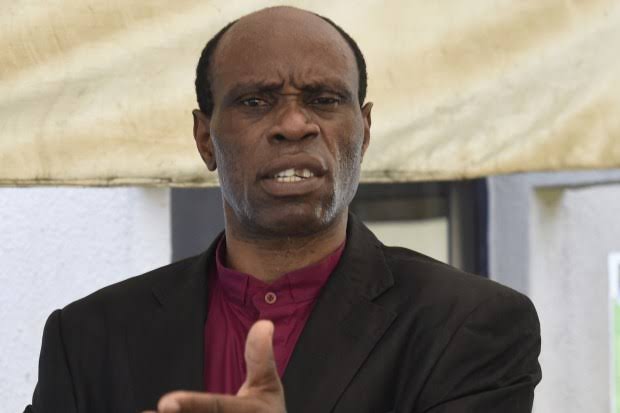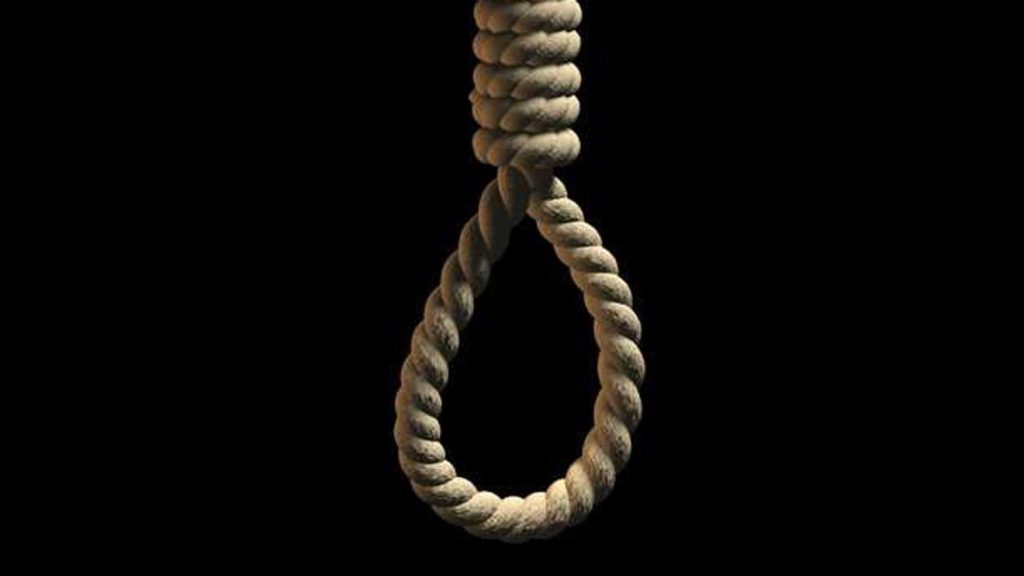News
The Buhari Economic Policy Direction That Excites Me By Abubakar Usman
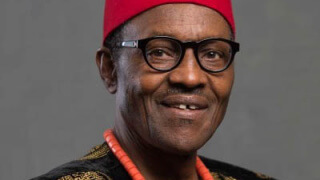
I have heard and I have read, many people say that the government of President Muhammadu Buhari does not have an economic direction. That this is the reason why things are getting bad in the country. My submission is that people who share this opinion have either refused to tell themselves the truth or they live elsewhere outside this world. However, I have decided to pen this piece to let them know that not only does the Buhari government have an economic direction, it is also one that looks very promising.
In the last few months, particularly since President Buhari took over the mantle of leadership, things have really taken a nose dive. The hunger in the land is increasing, the unemployment rate is worsening and the poor are getting poorer. Was this unexpected? The answer is a clear no. What we are witnessing today is not a factor of a Buhari government. I posit that Nigeria would still have been witnessing the same thing or even worse if Jonathan were to be the president today and I will tell you why.
Except for the first quarter of 2015 when the price of crude under the Jonathan regime sold for $58.7 per barrel on the average, Nigeria’s crude sold for as high as $150. In 2011, 2012, 2013 and 2014, Nigeria’s crude was sold for a yearly average of $113.8, $113.5 $111.0 and $100.4 per barrels respectively. Within the same period, our foreign reserves rose and fell from $32,639.8bn $43,830.4bn $42,847.3bn and $34,250bn respectively, before it finally crashed to $29,595.28bn in the first quarter of2 015, while the country’s GDP rose from $409.34bn in 2011 to $561.61bn in 2014. (Source: RTC Advisory Services Ltd, Nigeria Retrospect – Economy and Policy, 1999-2015).
Looking at the above figures, the believe was that Nigeria’s economy was on a good footing, but this is not exactly so. Why the growth figures are good, the successes recorded are largely uncoordinated, especially because the structure and quality of growth were not considered. This is why the UNDP Human Development Report, 1996 stated that “unless governments take timely corrective action, economic growth can become lopsided and flawed. Determined efforts are needed to avoid growth that is jobless, ruthless, voiceless, rootless and futureless.” Take unemployment for example, despite the huge revenue from oil between 2011 and 2014, the unemployment rate never really dropped. In 2013, its was 24.7% and in 2014, it stood at 24.3%. Even in 2012 when the yearly average of oil earning was $113, unemployment rate stood at 27.4%.
The question then is why are most Nigerians poor despite rising revenues and GDP growth? The answers are not far-fetched. Firstly, oil which is Nigeria’s main revenue does not by itself, create many jobs. Jobs created from oil are only a few compared to the revenue it generates. Secondly, is the issue of corruption and lack of transparency that was pervasive in the last government. Over the last four years, there have been several alarming and scandalous cases of corruption in Nigeria. From the $6bn Fuel Subsidy Scam to the missing $20billion NNPC scam and the 300,000-400,000 barrels of oil per day that was stolen from the country amongst many others. And juxtaposing this with the fact the infrastructural problem of the country especially in areas of roads and transportation; power; Information technology continue to suffer neglect despite huge revenue, it will be a mirage to think that Nigeria can be repositioned for success.
One other thing responsible for the poor state of affairs in the country is the fact that the poor population of 110 million Nigerians lack access to healthcare, education and other social welfare programmes due to low spending on these sectors by the last government.
So what is the way forward? What is the Buhari government doing differently? Since coming into power, President Buhari has put in place measures specifically to shore up the revenue of government because no matter how lofty your plans are, you can only implement those plans where there is money. This is why the president has ensured transparency in the oil and gas sector with the appointment of Dr Ibe Kachiku as the GMD of NNPC who in turn has taken measures to reform the sector and block leakages in oil revenue. The president also appointed Babatunde Fowler, the man who turned around the revenue of Lagos state to head the Federal Inland Revenue (FIRS) and Hameed Ali into the Nigeria Custom Service (NCS). With the reforms and re-organisation going on in these two agencies of government, the plan is to ensure that revenue earned from both surpasses the revenue generated from oil.
The directive that all Ministries, Departments and Agencies of the Federal Government register for the Treasury Single Account domiciled with the Central Bank of Nigeria is also another measure to shore up government revenue. At least N1.4tn had so far been paid into the TSA to date, an amount that would have been available to looters to feast on in previous administration.
In addition, the government is also pursuing an anti-corruption agenda to prosecute and bring to justice, those who turned the country’s resources into their private pockets. Though, nobody has been convicted so far, but some perpetrators have been taken to court and some amount of money recovered. I believe details on this will be made available soon.
Away from shoring up revenue, government has also put in place measures to invest in the people (social sector investment).To achieve this therefore, the government has outlined an objective of stimulating and supporting the establishment of world class skill acquisition centres in all 109 Senatorial Districts of the Federation. The government has also made a commitment to provide one meal a day for all primary school students which will create 1.14million jobs in agriculture, with a multiplier effect in increased food production and attract investment.
Boosting rural economy, lifting millions out of poverty through a conditional fund transfer to 25 million poorest households to incentivize vaccination, education and production is also at the heart of the government. The government is also set to diversify the economy by investing in the areas of Agriculture, Manufacturing, Entertainment and Technology as well as boosting education and building capacity to improve teacher quality with the expectation of having an educated population to increase economic potential for productivity.
All these are important because according to the IMF: “Specifically, if the income share of the top 20 percent (the rich) increases, then GDP growth actually declines over the medium term, suggesting that the benefits do not trickle down. In contrast, an increase in the income share of the bottom 20 percent (the poor) is associated with higher GDP growth. The poor and the middle class matter the most for growth via a number of interrelated economic, social, and political channels.”
With the efforts at shoring up revenue as I earlier outlined, the government will have the resources to implement these programmes, the resultant effect of which would be more jobs for Nigerians, an educated and healthy population, a repositioned economy built on structures and quality of growth and a population lifted out of poverty. If this is not an economic direction, I wonder what is.
Abubakar Usman is a member of the Buhari Media Support Group
News
2027: ADC Coalition Deceiving Nigerians – Baba-Ahmed
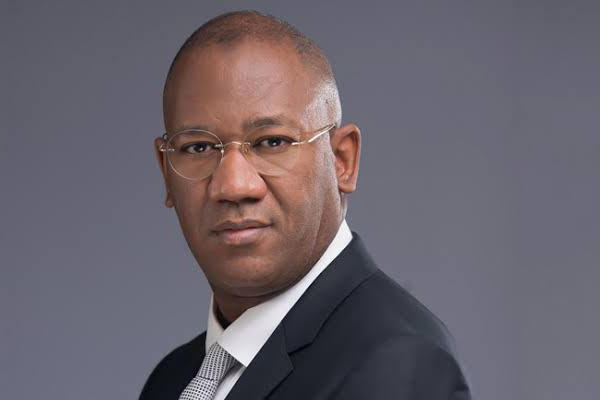
The 2023 Labour Party (LP) vice-presidential candidate, Datti Baba-Ahmed, has warned Nigerians that the opposition coalition under the African Democratic Congress (ADC) is giving false hope about rescuing the country from underdevelopment.
“They are deceiving us,” Baba-Ahmed said during an interview on Channels Television’s Politics Today on Friday.
Baba-Ahmed, who ran alongside Peter Obi in the 2023 presidential election won by Bola Tinubu of the All Progressives Congress (APC) expressed his willingness to be Obi’s running mate in the 2027 presidential election.
Although Obi has shown interest in the 2027 race and is aligning with ADC coalition figures such as David Mark, Atiku Abubakar, Nasir el-Rufai, Rotimi Amaechi, and Rauf Aregbesola, Baba-Ahmed stressed that he wants Obi to remain in the Labour Party and contest as its presidential candidate.
“I’m in the Labour Party. I’m a Peter Obi man. I still want Peter Obi to come back to the Labour Party and contest the 2027 election,” Baba-Ahmed stated.
When asked about his plans for the 2027 race, Baba-Ahmed confirmed his readiness to serve as a running mate for like-minded leaders committed to restoring Nigeria.
“If Nigeria is still around and there is an electoral system to follow, my love for Nigeria is undying.
I would appropriately associate with groups and individuals aligned with restoring the nation,” he said.
Baba-Ahmed also revealed two potential leaders he would consider deputising, with Peter Obi being his primary choice. “The first one has not said anything.
The second one is Peter Obi. I’m always with Peter Obi until he decides not to,” he added.
News
Tinubu Secures Fresh $238m Loan from Japan

Nigeria has secured a $238 million loan from the Japan International Cooperation Agency (JICA) to support the expansion and modernization of the national power grid.
The deal, confirmed during engagements at the ninth Tokyo International Conference on African Development (TICAD9) in Yokohama, Japan, reflects a strategic shift towards implementation-driven energy development.
President Bola Tinubu highlighted that Nigeria’s participation at TICAD9 focused on concrete, outcome-oriented partnerships rather than ceremonial diplomacy.
“We are moving from planning to implementation, from agreements to delivery, and from promises to measurable results,” he said.
Details of the JICA Loan Project
The $238 million loan, supported by a Federal Executive Council counterpart funding of ₦19,083,192,805.30, will finance significant upgrades to Nigeria’s transmission infrastructure.
Key components of the project include:
Construction of 102.95 km of new 330kV double-circuit lines
Construction of 104.59 km of 132kV double-circuit lines
Development of four 330/132/33kV substations and two 132/33kV substations
Multiple line bay extensions to improve efficiency and reduce system losses
According to Minister of Power, Chief Adebayo Adelabu, the partnership with Japanese companies such as Toshiba, Hitachi, and Japan’s Transmission & Distribution Corporation is essential for unlocking Nigeria’s energy potential.
“Our focus is on transmission infrastructure, operational efficiency, and strategies to reduce system losses.
This $238 million loan from JICA provides the backbone for that transformation,” Adelabu explained.
Adelabu acknowledged Japan’s consistent support for Nigeria’s power sector, highlighting contributions in infrastructure, technical studies, training, and financing.
He emphasized that JICA’s backing is critical to expanding access to reliable, affordable, and sustainable electricity across the country.
The project aims to strengthen Nigeria’s power transmission network, improve system reliability, and enhance overall efficiency, ultimately supporting industrial growth and meeting rising electricity demand nationwide.
News
‘Gate of Hell’ Will Open on Gaza’– Israeli Defence Issues Finally Warning to Hamas

Israeli Defence Minister Israel Katz has issued a fierce warning to Hamas, declaring that Gaza City will face complete destruction if the militant group refuses to accept Israel’s conditions for ending the war.
Katz, in a statement shared on social media on Friday, August 22, 2025, used sharp words to describe Israel’s next steps.
He said the “gates of hell” would open on Hamas if it failed to disarm and release all hostages.
“Soon, the gates of hell will open upon the heads of Hamas’s murderers and rapists in Gaza until they agree to Israel’s conditions,” Katz wrote.
He added that if Hamas refused, Gaza City would suffer the same fate as Rafah and Beit Hanoun, two cities previously flattened by Israeli offensives.
His comments mark one of Israel’s strongest warnings since the escalation of the conflict.
The minister’s remarks came only hours after Prime Minister Benjamin Netanyahu announced that negotiations had been ordered to free the hostages held in Gaza.
Netanyahu explained in a video address that Israel’s military operation in Gaza City would not stop during talks. “Defeating Hamas and releasing our hostages go hand in hand,” he said.
The prime minister also confirmed the mobilisation of 60,000 reservists to join the offensive.
Meanwhile, mediators have been waiting for Israel’s response to a ceasefire plan that Hamas accepted earlier in the week.
The proposal suggests a phased release of hostages, but Israel insists that only a deal ensuring the release of all captives at once will be accepted.
Israel’s hardened stance has sparked growing concern worldwide.
International leaders have cautioned that an expanded assault on Gaza City could worsen the humanitarian disaster already unfolding in the region.
Gaza’s health ministry says more than 62,000 Palestinians, most of them civilians, have been killed since Israel’s military campaign began.
The United Nations considers these figures credible.
The war was triggered by Hamas’s October 2023 attack, which left 1,219 people dead in Israel, mostly civilians.
Since then, the conflict has intensified, with both sides showing little sign of compromise.
With Katz’s threat to turn Gaza City into rubble if demands are not met, the conflict appears to be entering an even deadlier stage.
The international community continues to press for a ceasefire, but Israel’s leadership insists that victory over Hamas and the release of all hostages remain its top priorities.
Health
NAFDAC Raises Alarm as Fake Cowbell Milk Floods Nigerian Markets
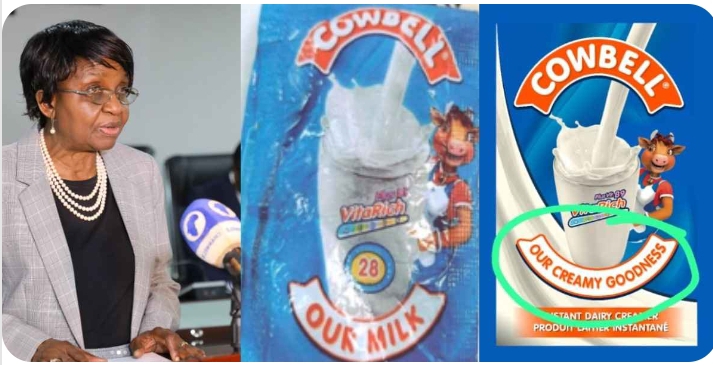
The National Agency for Food and Drug Administration and Control (NAFDAC) has raised alarm over the circulation of fake Cowbell “Our Milk” 12g sachets in Nigeria.
In a statement issued on Friday, August 22, 2025, the agency explained that the counterfeit milk is packaged to look like the discontinued Cowbell “Our Milk,” but it is unauthorised and unsafe for consumption.
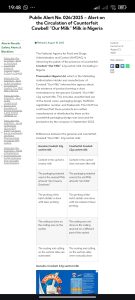
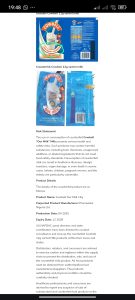
NAFDAC clarified that Promasidor Nigeria Ltd, the authentic manufacturer, stopped producing Cowbell “Our Milk” in September 2023.
The product was replaced with Cowbell “Our Creamy Goodness.” Despite this, fake versions of the old product have found their way into Nigerian markets.
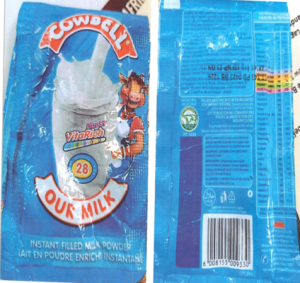
Picture of Fake cowbell milk.
The counterfeit sachets bear the brand name, NAFDAC registration number, and familiar packaging design, making them difficult for unsuspecting buyers to identify as fake.
Health Dangers of Fake Cowbell Milk
NAFDAC warned that the consumption of these counterfeit products poses serious health risks.
Fake milk could contain toxic chemicals, harmful additives, or diluted ingredients that endanger human health.
Infants, children, pregnant women, and the elderly are the most vulnerable. Possible dangers include:
- Foodborne illnesses
- Allergic reactions
- Organ damage
- Long-term health complications
- In extreme cases, death
Counterfeit Product Details
- Product Name: Cowbell “Our Milk” 12g sachet
- Purported Manufacturer: Promasidor Nigeria Ltd
- Production Date: 04/2025
- Expiry Date: 12/2028

Picture of original cowbell milk.
NAFDAC Issues Strong Warning
The agency urged Nigerians to remain vigilant and avoid purchasing the counterfeit milk.
Healthcare professionals, distributors, and consumers have been advised to report suspicious sales of substandard or fake products immediately.
Reports can be made through:
The nearest NAFDAC office
Toll-free line: 0800-162-3322
Email: sf.alert@nafdac.gov.ng
NAFDAC also called on traders and retailers to stop selling the fake sachets.
The agency assured the public that strict enforcement measures are being taken to remove the counterfeit products from circulation.
This is not the first time Nigerians have faced risks from fake food and beverages.
Experts warn that counterfeit consumables are becoming more sophisticated, often making them difficult to spot.
Consumers are advised to always check product details, expiry dates, and packaging changes announced by manufacturers.
By highlighting the dangers and raising awareness, NAFDAC says it hopes to protect Nigerians from avoidable health crises linked to fake milk products
Africa
‘Misplaced Priority’: Peter Obi Blasts FG’s ₦142bn Bus Terminal Project

Former Labour Party presidential candidate Peter Obi has slammed the Federal Government’s approval of ₦142 billion for the construction of bus terminals across Nigeria, describing it as a reckless misplacement of priorities.
Obi issued a statement on Friday, August 22, via his Official X formerly Twitter platform, warning that the project reflects poor leadership and lack of focus in managing Nigeria’s limited resources. He titled his statement, “₦142 Billion for Bus Terminals.”
According to him, the true test of leadership is how scarce resources are prioritized.
He stressed that investing such a huge amount in bus terminals while critical sectors like healthcare suffer shows a government that is out of touch with citizens’ realities.
Obi said: “The difference between success and failure in any nation is how leaders prioritise resources.
The decision to spend ₦142 billion on six bus terminals exposes a lack of competence and vision. It is a clear sign of poor leadership.”
The Federal Executive Council had recently approved the funds for the construction of one modern bus terminal in each of the six geopolitical zones.
The government described it as part of efforts to modernise transport infrastructure and improve mobility nationwide.
But Obi strongly disagreed. He compared the allocation to healthcare funding, pointing out that the combined budget for all teaching hospitals and federal psychiatric centres in Nigeria is less than ₦100 billion in the 2024 budget.
“This is disturbing,” Obi continued, “because health remains one of the most critical sectors of development. Yet it is underfunded and deteriorating rapidly.
The World Health Organization has reported that over 20 million Nigerians live with mental health conditions.
This is a tragic irony. How can the government ignore this crisis and focus on bus terminals?”
He argued that the health sector, alongside education and poverty reduction programs, deserves priority attention.
Obi insisted that until government spending reflects the real needs of Nigerians, the country will remain trapped in poor governance.
Many Nigerians have also taken to social media to express anger, echoing Obi’s concerns. Critics argue that the decision proves the Federal Government is disconnected from the economic struggles of ordinary citizens.
For Obi, the ₦142 billion project is not just a case of wrong timing.
He sees it as a clear example of governance failure and misplaced priorities.
-
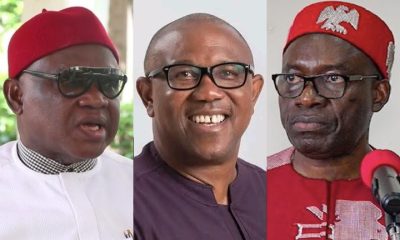
 Featured4 days ago
Featured4 days agoYour Attacks on Peter Obi Are Petty, Stop It! Chekwas Rebukes Soludo
-
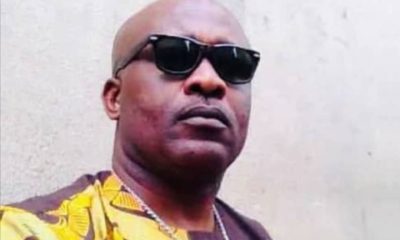
 News3 days ago
News3 days agoTension in Anambra community as senior police officer shoots kinsman dead
Colleagues, others try cover-up; victim's family fights back
-
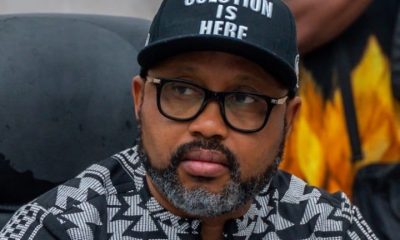
 News7 days ago
News7 days agoAnambra South Bye-Election: APC Chief Rescues Deputy Gov Caught In Vote Buying From Angry Youths
By Chuks Collins, Awka
-

 News5 days ago
News5 days agoNigerian visa applicants must provide 5-yr social media history — US embassy
-

 Celebrity/Entertainment21 hours ago
Celebrity/Entertainment21 hours agoHow Nigerian TikToker Geh Geh Made ₦45 Million in One Night
-
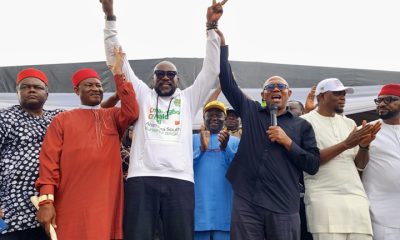
 Analysis6 days ago
Analysis6 days agoSystemic Sabotage: How APC, INEC Colluded To Undermine Amamgbo’s Senatorial Bid
By Arthur Ezechukwu
-

 News3 days ago
News3 days agoTerrorist Organisation: APC, PDP Members in US, UK, France Risk Deportation
-

 Celebrity/Entertainment5 days ago
Celebrity/Entertainment5 days agoWhy single mothers can’t raise boys into proper men — Jim Iyke
-

 News6 days ago
News6 days agoBREAKING: Troops arrest Nigeria’s most wanted terror kingpin
-

 News2 days ago
News2 days agoVandal electrocuted while vandalizing Aba power infrastructure



